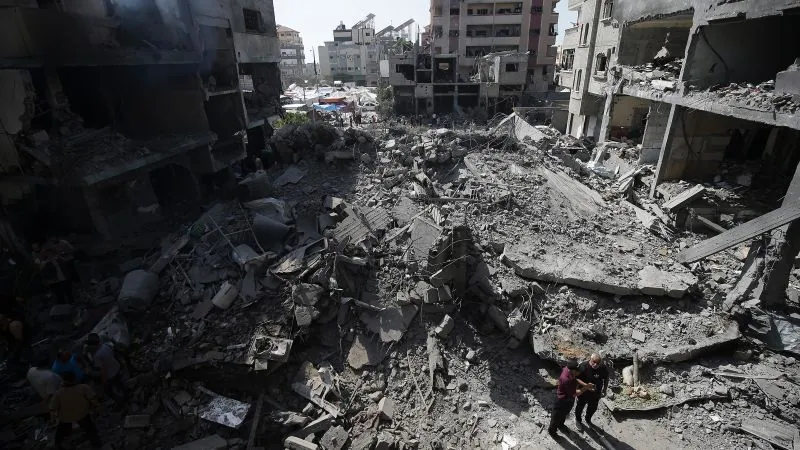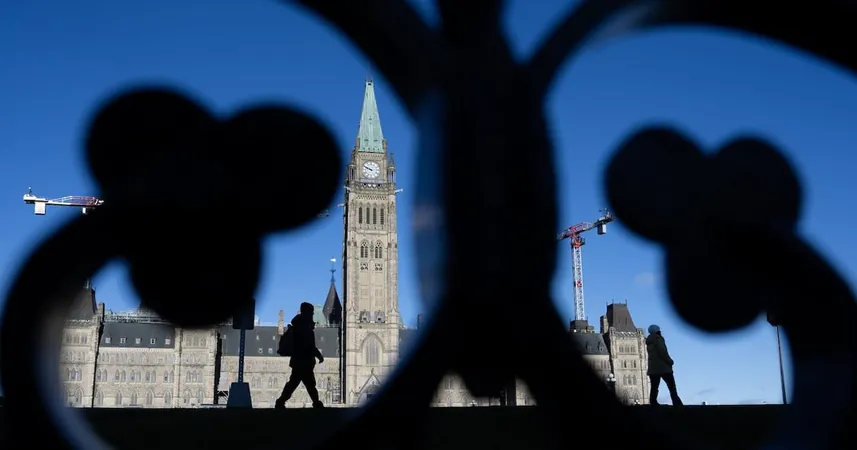
B.C. Communities Face Rapid Loss of Icy Winters Due to Climate Change
2024-12-17
Author: Amelia
Introduction
In a striking revelation, a new analysis has uncovered that Vancouver and its surrounding areas are experiencing a dramatic change in winter conditions, as climate change accelerates the loss of icy days more than in any major city across Canada. The U.S.-based research organization, Climate Central, has published findings indicating that from 2014 to 2023, Vancouver saw an average of 69 winter days where temperatures soared above freezing, a staggering 19 days more than in a hypothetical world without human-induced climate shifts.
This trend starkly contrasts with other Canadian cities; for instance, Toronto witnessed an increase of just 13 non-freezing days, and Montreal had an additional six days above zero. Kristina Dahl, Climate Central's vice-president for science, explained that the analysis involved comparing temperature data from the past decade with computer models simulating a world unaffected by climate change. This enabled them to quantify the significant loss of winter days due to rising global temperatures.
Dahl emphasized the importance of understanding these changes, noting, 'Winter seems warmer than it used to be. We want them to make that connection that this is climate change. You are seeing something real, and here’s exactly how real it is.'
B.C. Communities Ahead of the Curve
Particularly alarming is the impact felt in British Columbia, where several communities are reported to have experienced some of the highest increases in winter days above freezing in the country. Notably, Nanaimo and the Cowichan Valley on Vancouver Island recorded increases of 18 and 17 above-zero days, respectively. The broader Metro Vancouver area also saw a remarkable 16 additional days where temperatures stayed above freezing over the past decade.
Climate Change's Global Significance
The findings extend beyond Canadian borders, with nearly 44 percent of cities analyzed globally experiencing a week’s worth of additional days above freezing due to climate change. Among the hardest-hit locations worldwide, the Japanese city of Fuji registered a staggering loss of 35 winter days of freezing temperatures, highlighting the widespread influence of climate change. In Europe, cities in Italy, Norway, Latvia, and Denmark are similarly grappling with an alarming increase in above-freezing days, some adding up to three weeks to their winters.
Climate scientist Robert Whitewood from Environment and Climate Change Canada, who reviewed the Climate Central data, remarked on the implications for human activities and the environment. 'It’s certainly not surprising. We’re seeing more relative warming in the winter,' he explained.
The Cultural Impact of Warming Winters
The shifting climate poses unique challenges, particularly for Indigenous communities that rely on consistent winter conditions for hunting and for municipalities that depend on significant snowpack for water supply during the summer months. Moreover, winter sports and recreational activities are at risk due to the warming climate. Two-time Olympic athlete Philippe Marquis, who now coaches Canada's national freestyle ski team, expressed his concern for the long-term vitality of winter sports in Canada.
Reflecting on his own experiences, Marquis recalled a time when snow during the winter was a given: 'The nicest memories I’ve got were just a white Christmas. There was never any question about whether we would be skiing around Christmas.' However, he noted a concerning shift toward 'brown Christmases,' where snow is delayed and frozen lakes are rare.
The data reveal that Vancouver's loss of 19 winter days ranks among the top 6.5 percent of cities worldwide, comparable to places like Krakow in Poland and Tbilisi in Georgia. With a warming trend being notably apparent, Marquis warned that the implications of these changes could be profound for future generations, affecting both the cultural fabric and economic activities centered around winter.
Call to Action: Awareness and Change
As climate change continues to reshape winter landscapes throughout British Columbia and beyond, there is an urgent need for public awareness and proactive measures. Citizens are urged to acknowledge these shifts and advocate for environmentally-friendly policies to mitigate the impact of climate change. The survival of traditions, ecosystems, and the vitality of communities hangs in the balance as we navigate this critical juncture in our planet's climate narrative.









 Brasil (PT)
Brasil (PT)
 Canada (EN)
Canada (EN)
 Chile (ES)
Chile (ES)
 España (ES)
España (ES)
 France (FR)
France (FR)
 Hong Kong (EN)
Hong Kong (EN)
 Italia (IT)
Italia (IT)
 日本 (JA)
日本 (JA)
 Magyarország (HU)
Magyarország (HU)
 Norge (NO)
Norge (NO)
 Polska (PL)
Polska (PL)
 Schweiz (DE)
Schweiz (DE)
 Singapore (EN)
Singapore (EN)
 Sverige (SV)
Sverige (SV)
 Suomi (FI)
Suomi (FI)
 Türkiye (TR)
Türkiye (TR)